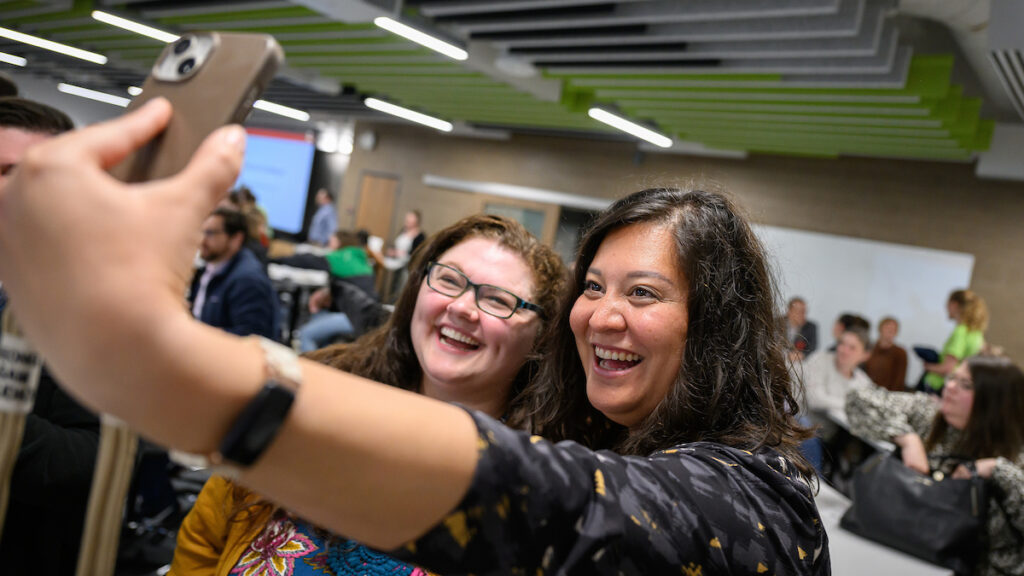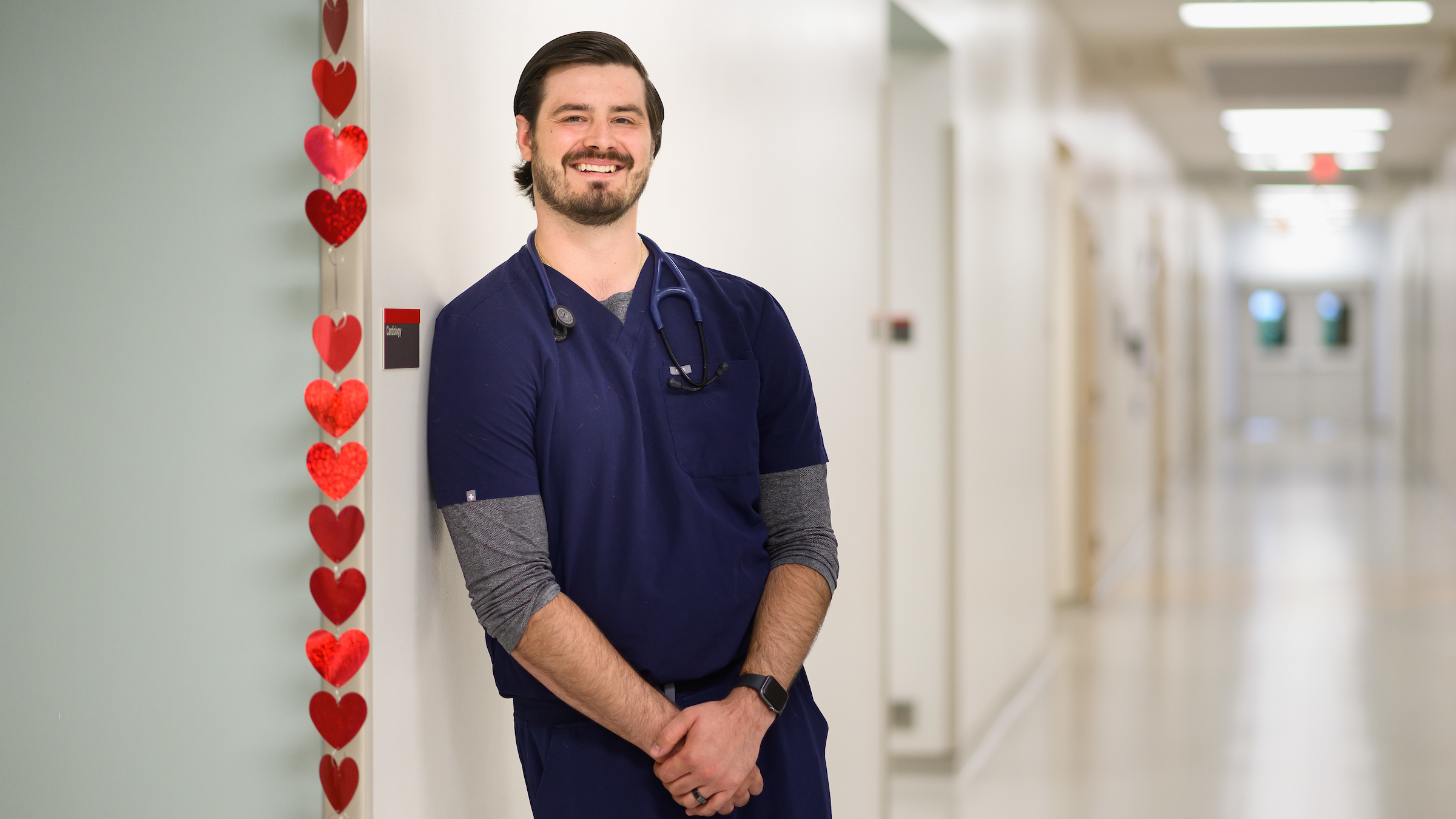CVM Strategic Plan Sets Course for Continued Success
The NC State College of Veterinary Medicine has approved a refreshed strategic plan that puts community at the center of the college’s goals over the next five years and that sets metrics to measure progress in each of five areas.
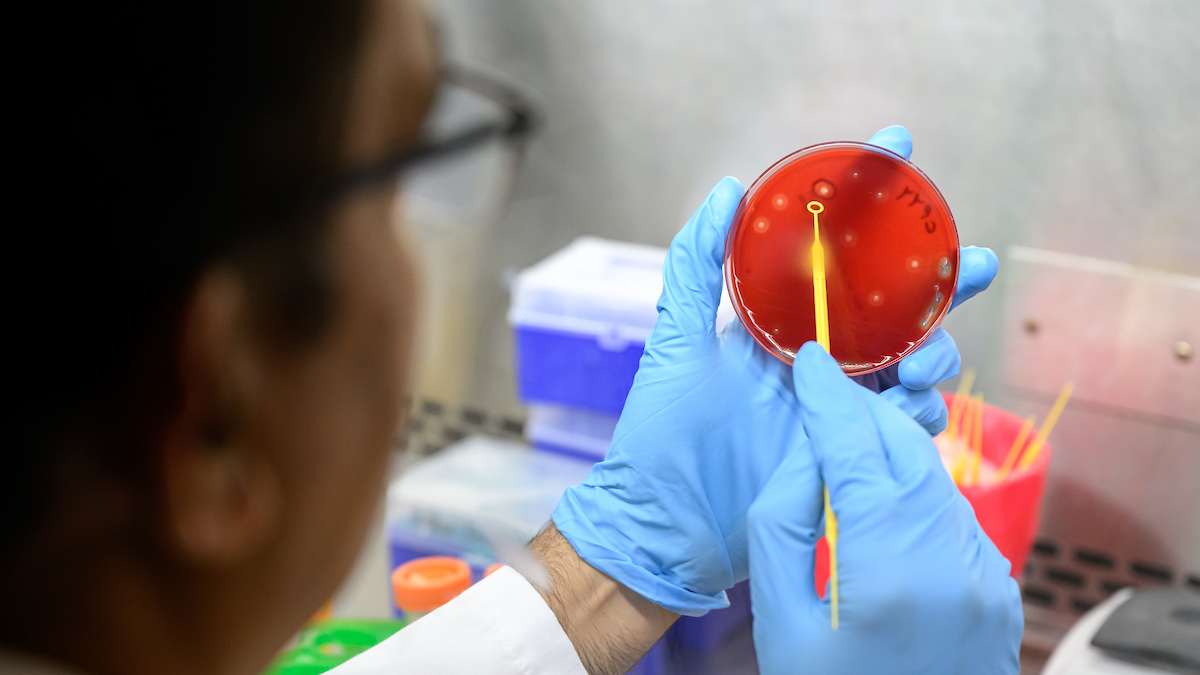
The NC State College of Veterinary Medicine has a new roadmap to success, having approved a refreshed strategic plan that puts community at the center of the college’s goals over the next five years and that sets metrics to measure progress in each of five areas.
The plan seeks to strengthen the college’s efforts in excelling in trainee-centered learning, life-changing research and innovative, patient-centered care and in creating more impactful partnerships and a continually thriving college community.
“We want to be internationally recognized for advancing animal and human health, through our discovery and training process,” says Dr. Kate Meurs, dean of the NC State College of Veterinary Medicine. “But our goals really all connect with community. To have a permanent impact on animal and human health, it’s critical that we have a thriving community of trainees, faculty and staff who enjoy what they do and feel that they are able to have a career here that is professionally and personally fulfilling and supports their well-being.”
The college began the process of refreshing the previous five-year strategic plan in the fall of 2022, contracting with consulting group AMC Strategies to guide the effort. College leaders, faculty, staff and trainees worked together to update the plan’s goals and strategies, focusing on helping the college navigate inevitable new challenges and celebrate ongoing successes.
“A strategic plan is a fluid document, but it gives us a roadmap to get where we want to be five years from now,” Meurs says. “We certainly anticipate adjusting things a little bit as we make progress. Some things may move faster than others.”
The critical research happening every day at the NC State College of Veterinary Medicine is, like community, another focus that permeates the plan.
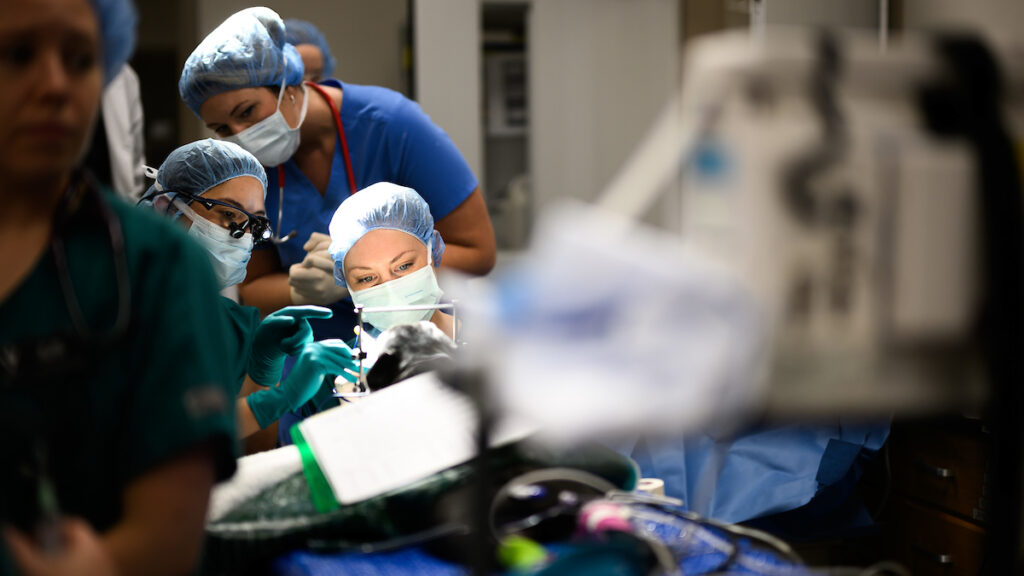
Dr. Joshua Stern, associate dean of research, says he’ll be watching how the translational nature of many veterinary research areas impacts the community and world but also how research improves standards of care at the NC State Veterinary Hospital and the quality of education at the college.
“Life-changing research at the CVM takes many, many forms,” Stern says. “We have folks doing research every day in the clinic, observing patients with specific disease processes, making hypotheses about what they can do differently and implementing that to make real change in those animals’ lives.”
The college also has research at the other end of the spectrum, he says.
“We look at human health relative to animal disease, and we look at our food supply and at environmental toxins and exposures,” he says. “All of this is valued in our CVM model and throughout the strategic plan.”
Both Stern and Dr. Anthony Blikslager, associate dean and director of veterinary medical services, say college leaders worked hard to include ways to define the five goals in the strategic plan and measure progress.
For instance, the goal to strengthen “innovative, patient-centered care,” which falls mostly under Blikslager’s purview, will include monitoring the numbers of new clinical trials and programs and measuring the satisfaction of clients and referring veterinarians.
To further clarify the goal, the strategic plan outlines four tenets: advancing patient care through discovery and innovation; providing flexible, experiential learning that prepares College of Veterinary Medicine trainees for success; supporting educational, research and patient care missions in a safe, well-balanced work environment; and partnering with the community to provide compassionate, comprehensive care.
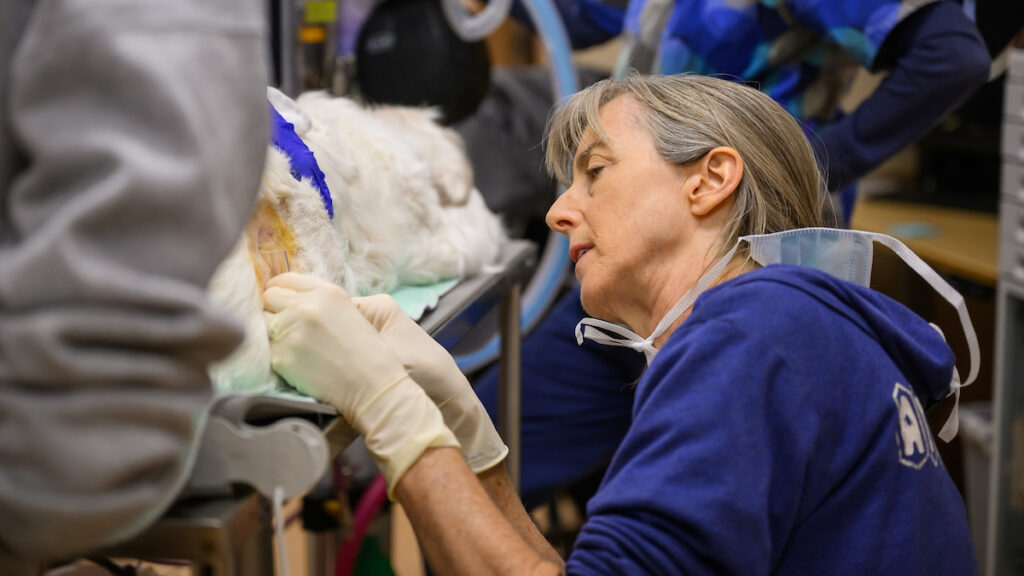
“So much of innovation is actually patient-centered because we’re always looking for ways to treat animal diseases we’ve never been able to successfully address before,” Blikslager says. “Plasmapheresis is a good example of that because, 10 years ago, if a dog got into ibuprofen, we would have tried to turn that dog around purely medically, but now you can wash that blood and pull out that drug and cure the animal.”
The metrics that Stern will be looking at for the “life-changing research” goal include the number of patents secured and the number of researchers who receive grants from outside the College of Veterinary Medicine.
“That’s a really important metric for us,” he says. “We put in there manuscripts and grant dollars because, though we know those things aren’t a perfect representation, they certainly speak to our reach in the community. Every paper we publish in an area helps us understand that we’re making a difference in animal and human medicine.”
In addition, Stern says the NC State College of Veterinary Medicine will be watching how research projects enhance the other goals as well, particularly “trainee-centered learning.”
“Research is about bedside in the clinic, about the benchtop in a lab, about helping the community, but research is also in our classrooms,” Stern says. “How do we make sure that the methods we’re using for teaching are imparting knowledge in a way that’s unique, exciting and accessible to all of our students? There’s a lot of science around how best to teach students, and we’re deeply invested in that as well.”
Meurs says the strategic plan will be evaluated regularly to see how the college is advancing toward its goals but also to consider adjustments based on relevant news or changing community needs.
“This strategic plan focuses on community, both internally and externally, including alumni and all of our friends and stakeholders and colleagues throughout the state of North Carolina,” Meurs says. “Internally, having happy, well-balanced people is critical to being able to get the work done that advances the cause of animal and human health.”
